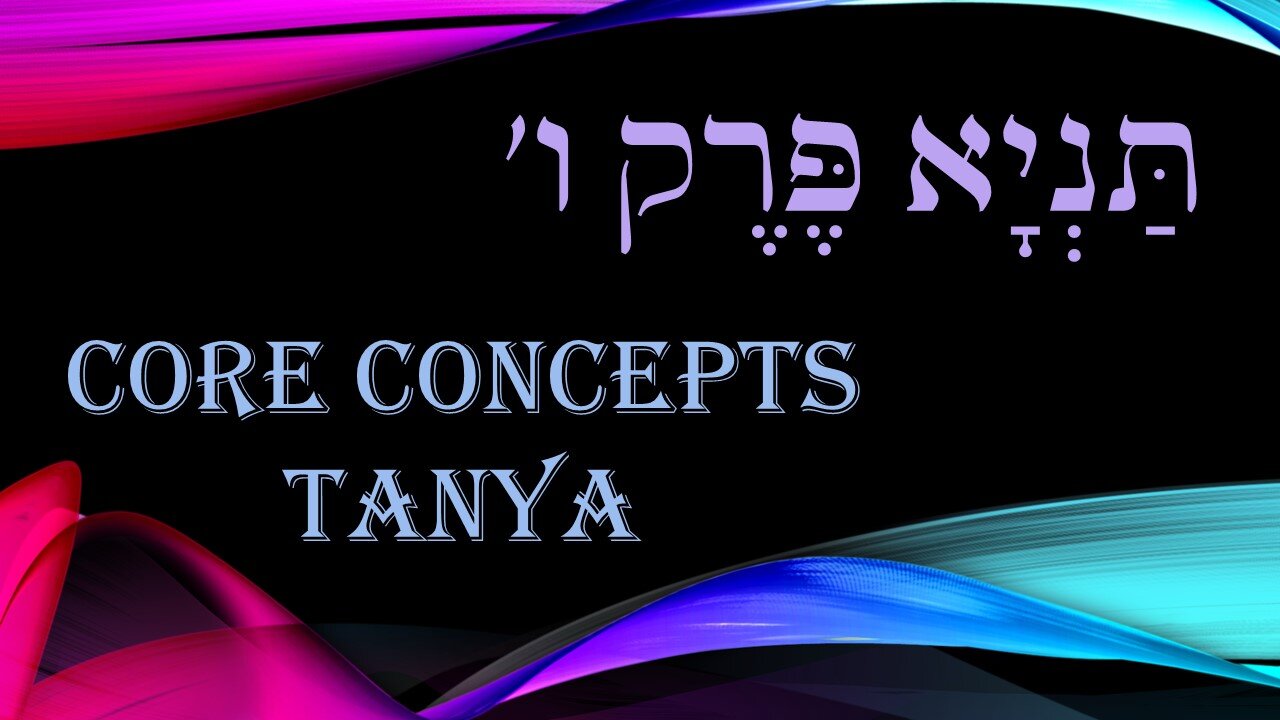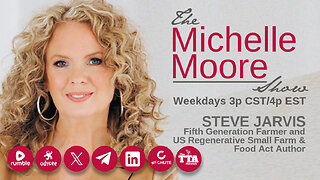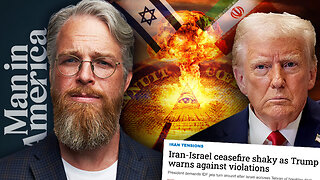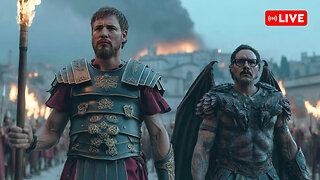Premium Only Content

Core Concepts Tanya: Chapter 6
Brief Recap of Chapter 6:
1. Chapter 5 teaches us that when we do a mitzvah, which is how we connect to G-d's will in this physical world, we are surrounded/enveloped in Divine light. When we study Torah, not only are we enveloped in Divine light, but our minds envelop that light, as well. So it's not a one-way hug; we hug the king and the king hugs us back, a mutual embrace.
2. Here's how: When we study an idea on an intellectual level, we are trying to wrap our minds around that concept. The more we contemplate or dwell upon the idea, the more we get wrapped up in it. For Torah study, not only is our mind trying to wrap itself around a Torah concept, but, because this is a holy pursuit, we are also surrounded by Divine light. Think of putting your hands around a light bulb, and being surrounded by other lit bulbs at the same time. (Or dipping a peanut butter cup in even more peanut butter goodness. So peanut butter dipped in chocolate dipped in peanut butter. Or a chocolate stuffed strawberry dipped in chocolate! Or a cheese stick dipped in cheese fondue. Etc.) The point is, our minds wrap around the light, and the light wraps around us, too. We're not just reaching for the Divine, we're not just touching it, we're "grasping" it.
3. The light enveloped by our minds is Torah. Torah is G-d's wisdom. G-d's wisdom comes directly from His essence.
So just imagine the kind of light you're "hugging" when you study Torah! This is the uniqueness of Torah study.
4. When the soul moves on from this world and enters the World to Come, it basks in the rays of the Divine Presence. However, it can't just absorb Divinity without some sort of conduit, or protection, or shield. This shield is a garment created by the mitzvot we do in this world. The more mitzvot we do, the more our "garment" allows us to enjoy in the next. Torah study is not just an "outer garment," but is also compared to food for the soul. Studying Torah sustains the soul, and reinvigorates it, in ways that mitzvot can't. It's a special type of inner life that we gain from it.
Side nots: When the Torah was given to Moses on Mount Sinai, he received the Torah in its entirety. Our sages teach that there is no concept in Torah that can be discovered that wasn't already given on Mount Sinai. And yet, throughout the generations we find distinguished commentators on the Torah who often revolutionized the way we viewed, studied, thought, practiced the Torah. Moses didn't teach every single solitary aspect of the Torah to the Jewish people when he passed it on to them. He gave them the Written Torah, and then passed on much through the Oral Law, which continued through the generations by word of mouth. So, for example, when the Talmud was written, the rabbis weren't inventing something new, but preserving what was becoming forgotten, including different ways that the original laws and commentaries had been expounded over the years.
Another thing to note is that certain aspects of Torah were more vital to certain generations. So, there were always four levels of interpretation of the Torah (as discussed in previous chapters), but some generations might have emphasized some explanations over others. For example, Rashi, the foremost, universally accepted commentator on the Torah, approached his commentary from the level of basic/ literal explanation of the text. Of course, Rashi's commentary is incredibly profound in its simplicity, and he was commentating on something we might have thought obvious for generations. Yet, Rashi needed to comment in the time that he did. For whatever reason, we needed him then.
In regard to Chassidus, the main thing that the Ba'al Shem Tov initiated was a major shift in focus on how we view different types of Jewish people. If we only look at things from a literal level, then we only see good and bad, sinner and saint with little room for shades of gray. The Chassidic movement, however, approached their view of others from a new perspective. "Do you realize how the Heavens shake when a Jew, any Jew, says a bracha?" "Do you know how much an angel would give just to wear tzitzit for one moment in this world?" "Do you know how much pleasure G-d gets out of a heartfelt 'Baruch Hashem!'?" Instead of looking at how much was lacking, it shifted the focus onto how much was already there, and therefore how much more there could be.
The Alter Rebbe's Tanya breaks down our make up on this level, a level where most of us are equal in potential achievement because it explains the very fabric of a Jewish person. In learning this, we understand just where we are, and how much more we can become.
-
 16:29
16:29
GritsGG
12 hours agoThis is How We Win 90% of Our Warzone Games
8.16K -
 4:50:20
4:50:20
The Pascal Show
16 hours ago $0.06 earnedDIDDY TRIAL LIVE! Feds FINAL WITNESS Testifies! Gov't To Rest Today Diddy Trial Day 28
9.01K -
 2:20:02
2:20:02
Side Scrollers Podcast
16 hours agoSMASH BROS SCANDAL, DISNEY PREDATOR COULD GET JAIL, MINDSEYE GUTTED | Side Scrollers Live
3.47K4 -
 1:21:26
1:21:26
The Michelle Moore Show
18 hours agoGuest, Steve Jarvis 'MAHA Solutions For Your State Rights To End the Chemtrails' The Michelle Moore Show (June 24, 2025)
57.5K12 -
 2:00:02
2:00:02
Inverted World Live
7 hours agoMake Crop Circles Great Again | Ep. 64
234K13 -
 2:45:21
2:45:21
TimcastIRL
8 hours agoIRAN STRIKE FAILED Claims LEAKED Intel Report, Trump Admin DENIES Report | Timcast IRL
241K160 -
 2:50:06
2:50:06
PandaSub2000
2 days agoGollum... again | ULTRA BEST AT GAMES (Original Live Version)
16.1K1 -
 45:05
45:05
Man in America
11 hours agoThe Banking Cartel NEEDS WW3—Can a Ceasefire Derail the Reset? w/ Collin Plume
73K29 -

SpartakusLIVE
9 hours agoDuos w/ Rallied || The Spartan and The Dragon DOMINATE the Tower of Power
68.7K -
 1:36:08
1:36:08
Adam Does Movies
10 hours ago $6.61 earnedTalking Movies + Ask Me Anything - LIVE
56.8K2